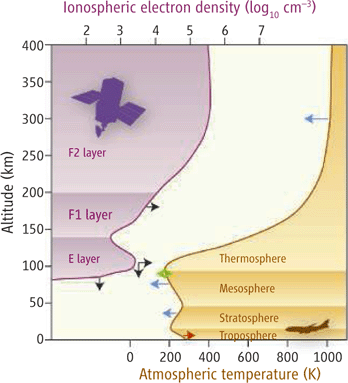 Along with Richard Somerville (UC San Diego) and Brenda Ekwurzel (Union of Concerned Scientists), I’ll be appearing at a debate on Wednesday (March 14th) about whether Global Warming is a crisis (or not). That might have gone without notice (like most of my public talks), except that our opponents are Michael Crichton, Richard Lindzen and Philip Stott. The preliminary position statements (from me and from Philip Stott) are available on the ABCnews site. It’s sold out, but the proceedings will be broadcast on NPR (for instance, WNYC 820 AM on Friday, March 23, 2007 at 2PM) and there will be a podcast (though I don’t know if it will stream live). There’s an online poll as well for what that’s worth.
Along with Richard Somerville (UC San Diego) and Brenda Ekwurzel (Union of Concerned Scientists), I’ll be appearing at a debate on Wednesday (March 14th) about whether Global Warming is a crisis (or not). That might have gone without notice (like most of my public talks), except that our opponents are Michael Crichton, Richard Lindzen and Philip Stott. The preliminary position statements (from me and from Philip Stott) are available on the ABCnews site. It’s sold out, but the proceedings will be broadcast on NPR (for instance, WNYC 820 AM on Friday, March 23, 2007 at 2PM) and there will be a podcast (though I don’t know if it will stream live). There’s an online poll as well for what that’s worth.
I’m quite looking forward to this, but I have to admit to conflicting thoughts. Does participating help perpetuate the idea that global warming per se is still up for debate? Is this kind of rhetorical jousting useful for clarifying issues of science that most people there will only superficially grasp? Can this be entertaining and educational? Or does it just validate the least serious opposition? Is it simply a waste of time that would be better spent blogging? ;)
I’d be interested in any thoughts people might have.
Küresel Isınma Müzakeresi
Ingilizce’den çeviren Figen Mekik
Richard Sommerville (UC San Diego) ve Brenda Ekwurzel eşliğinde (Union of Concerned Scientists-Endişeli Bilim Insanları Birliği), 14 Mart Çarşamba günü küresel ısınmanın kriz olup olmadığını tartışacağımız bir müzakereye katılacağım. Bu pek farkına varılmadan geçip gidebilirdi (benim pek çok halka açık konuşmam gibi) ama bu sefer karşı tarafta Michael Crichton, Richard Lindzen ve Phillip Stott var. Iki tarafın da tezini savunan ayrı birer yazı (ben ve Stott yazdık) ABC news sitesinde var. Müzakere’ye biletler çoktan satılmış, bitmiş. Ama müzakere hem radyoda (NPR, mesela WNYC de Cuma-23 Mart- sabahı 8:20de) yayınlanacak hem de bir podcast hazırlanıyor (ama canlı olmayacak sanırım). Internet sitelerinde bir de anket var.
Ben buna pek hevesliyim, ama bazı çelişkili düşüncelerim de var. Böyle bir müzakereye katılmak, küresel ısınmanın olup olmadığının hala tartışmaya açık olduğunu savunmak mı oluyor? Bu tip çekişmeler, oradaki insanları bilimsel konularda eğitmeye yarar mı? Bu hem eğlenceli hem de eğitici olabilir mi? Ya da ciddi bir muhalefeti geçerli kılmaya mı yarıyor? Yoksa bloglarla uğraşmaya ayıracağım zamanı buraya giderek boşa mı harcamış olacağım? ;)
Tüm fikirlerinize açığım.
